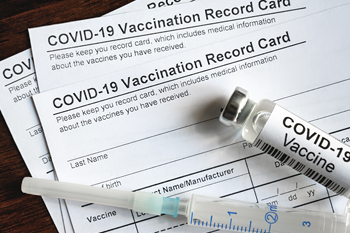Employment trends expert talks requiring employee vaccines & other COVID-19 considerations in the workplace
 A new survey found that while many Americans say they support employers requiring vaccines, that number greatly decreases when it comes to their own employer requiring the jab.
A new survey found that while many Americans say they support employers requiring vaccines, that number greatly decreases when it comes to their own employer requiring the jab.
“The recent poll results from the Kaiser Family Foundation show that while many Americans support the idea of requiring the COVID-19 vaccination, a far greater number have a strong opposition to their own employer requiring them to get vaxxed,” says Rob Wilson, President of Employco USA and employment trends expert.
Wilson says Americans report they will be more likely to get the vax if they are offered incentives like paid time off. However, the HR expert cautions that employers can’t go overboard when incentivizing the jab.
“According to the EEOC guidelines, employers can offer limited vaccination incentives, as long as the rewards and penalties are not so substantial as to be coercive,” says Wilson. “Instead of offering cash bonuses or another monetary reward, employers should simply reward fully vaccinated individuals by letting them skip the mask-wearing and drop social distancing, provided their worksite’s local and state laws allow it.”
Wilson also says that employers can offer PTO to those who might need time to recuperate after getting the vaccination.
“Employers can offer up to 80 hours of post-vax PTO with federal tax credit,” says Wilson, “So when it comes to offering incentives, this is a good place to start.”
But what happens to employees who cannot get the vaccination due to medical or religious beliefs?
“We need to keep it fair across the board, so if you’re offering a vaccination bonus to your employees who get the vax, but you have some employees who would get the vaccination but can’t due to their religious beliefs or health background, then it’s important to try to find ways to get a bonus to those workers too,” says Wilson. “For example, Kroger recently offered $100 to employees who got the coronavirus vaccine. But, for employees who were unable to get the vaccination but otherwise would have participated, Kroger offered a health and safety course they could complete for the $100 bonus. This helped to make the incentive feel more equitable and not unduly coercive.”
In the end, however, Wilson says that simply relaxing masks and social distancing requirements may prove to be enough of an incentive.
“It’s good to be cautious and continue taking the virus seriously, especially as we deal with this new Delta variant,” says Wilson. “But the best way to encourage vaccination compliance is by helping people to see that their lives and jobs can go back to normal if they get the shot. This may be a more powerful incentive than any monetary amount.”
For more on this topic, please contact Rob Wilson at rwilson@thewilsoncompanies.com.